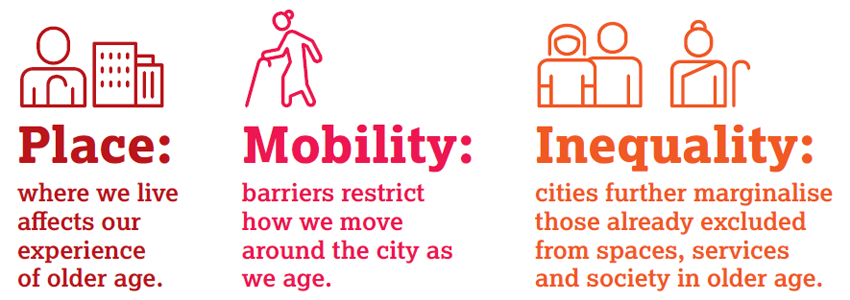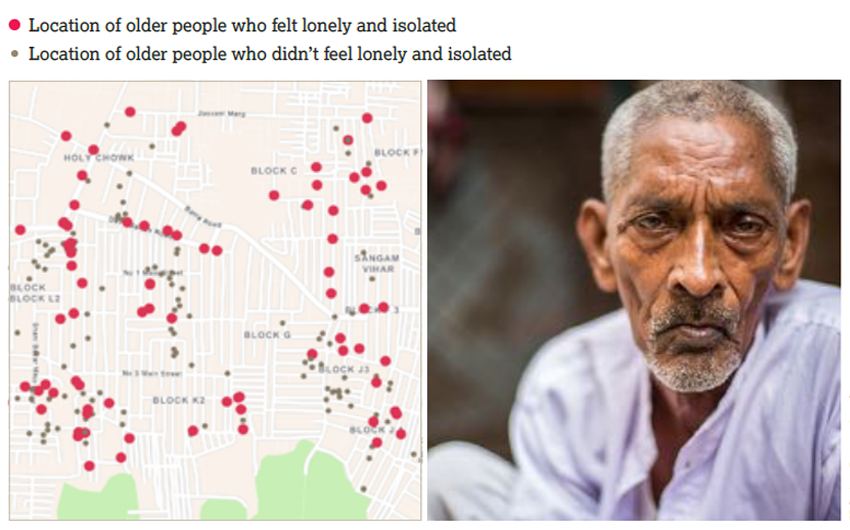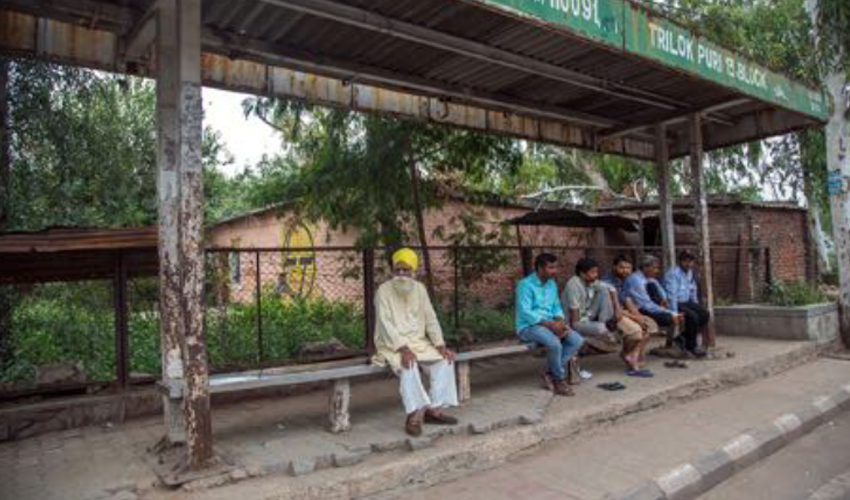
Globally, the population aged 65 and over is growing faster than all other age groups. According to data from World Population Prospects: the 2019 Revision, by 2050 one in six people in the world will be over age 65 (16%) , up from one in 11 in 2019 (9%). [1]
More than 500 million people aged 65 and above—over half the age group—currently live in cities, with the majority living in low- and middle-income countries.[2] This rapidly aging urban population requires an understanding of the factors that affect older people in the cities where they live. Also, as cities may further marginalize those already excluded from spaces, services, and society in older age, the demand for relevant data and evidence that would hold stakeholders accountable in delivering improvements that benefit older people and the broader communities is increasing.

The Data Innovation Fund (DIF) of the Trust Fund for Statistical Capacity Building III (TFSCB-III) supported a project led by HelpAge International that geo-mapped social and spatial barriers to urban service access in older age in Nairobi, Kenya, and Delhi, India. By collecting data on older people in the two cities, particularly those living in informal settlements or homeless, the project contributed to addressing three Sustainable Development Goals (SDGs): SDG 1 - No poverty, SDG 10 - Reduced inequalities, and SDG 11 - Sustainable cities & communities.

The project collected over 300,000 data points and analyzed and disaggregated data by age, gender, and disability. The research included various topics like ‘How I get to places’, ‘How I am affected by pollution’, ‘What makes me lonely and isolated’, and ‘Where I use a toilet’.
Some of the findings were:
- Older people in Nairobi and Delhi rely heavily on walking and public transport for their mobility (both 70%) and they are troubled by the state of streets. In Nairobi, older people said they were frustrated with waste and sewage system. When it rained, streets could become muddy and slippery.
- A significant number of older people feel unsafe walking down the street alone, both in the daytime and at night, due to fear of crimes, such as theft, harassment, sexual violence, and digital and financial scams.
- 48% of respondents in Nairobi used a public toilet regularly, especially those living in informal settlements who relied far more on public toilets than those in more formal areas. In Delhi, 7% of respondents used a public toilet. They also said there were not enough toilets in their area, which posed a significant problem if they wanted to go out, especially if they wanted to go somewhere far.
A smaller follow-up study focusing on transportation and older women was also carried out in Mexico City, representing scaling up from the project.
For the project’s full list of research topics and results, please see its Issue Papers, and Final Report.
One highlights of this project was the advocacy and engagement activities. Groups of older people were trained in using the project data to develop key advocacy messages and met with several local authorities, political representatives, and other stakeholders to discuss their key concerns and demands. As a result, in Delhi some actions were carried out including drainage unblocking to clear flooded streets and renovation works at local parks. In Nairobi, older people participated in UN Habitat and SDG events, and presented urban issues they faced, which will have longer-term outcomes as global-level policies better consider the experiences of the elderly.
The Trust Fund for Statistical Capacity Building III (TFSCB-III) is supported by the United Kingdom’s Foreign, Commonwealth & Development Office, the Department of Foreign Affairs and Trade of Ireland, and the Governments of Canada and Korea.
For more information about TFSCB, please visit our website.
For more information about other Data Innovation Fund projects, please click here.
[1] United Nations, Global Issues Overview, https://www.un.org/en/sections/issues-depth/ageing/#:~:text=Globally%2C%20the%20population%20aged%2065,11%20in%202019%20(9%25)
[2] United Nations, World Urbanization Prospects 2018, https://population.un.org/wup/



Join the Conversation